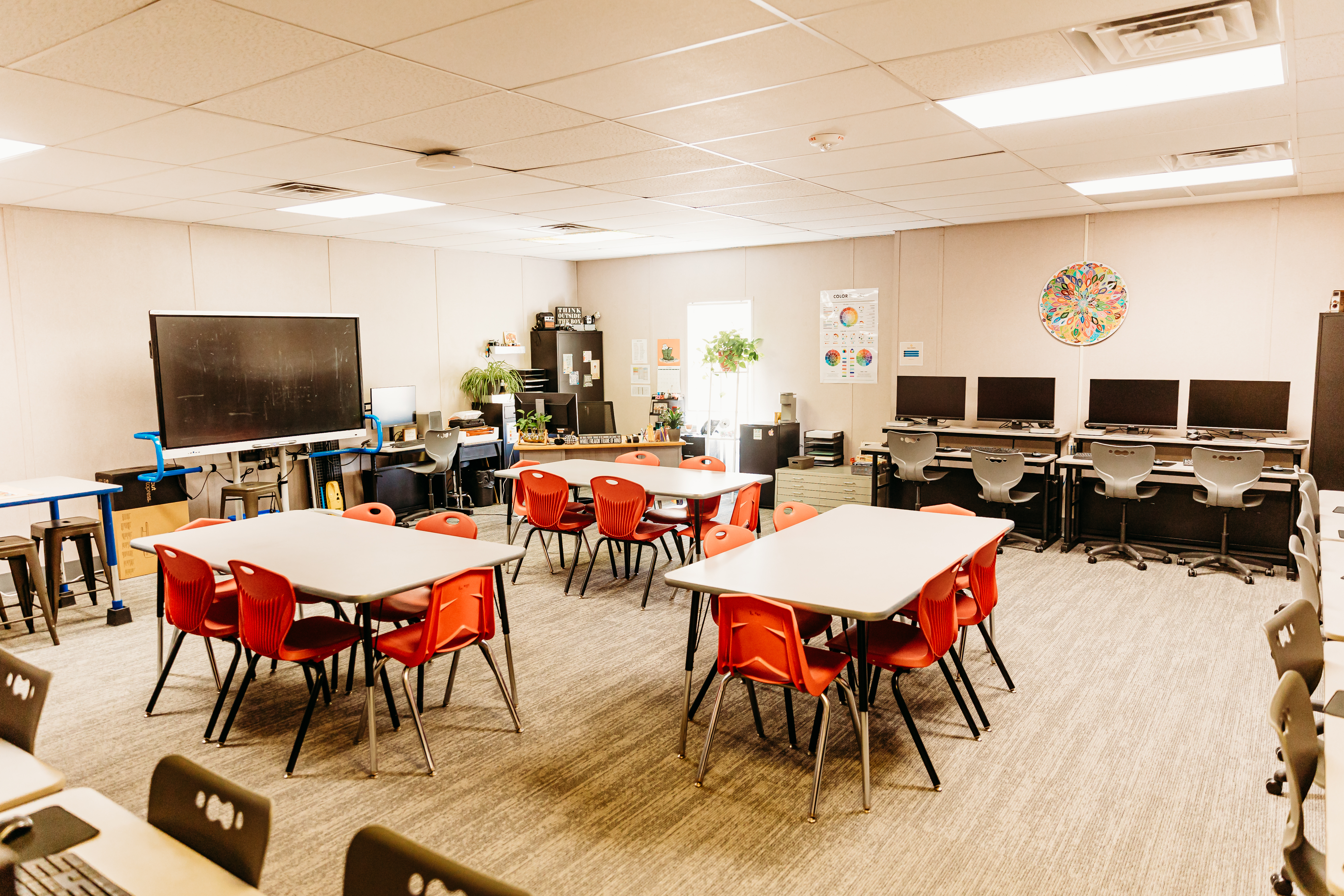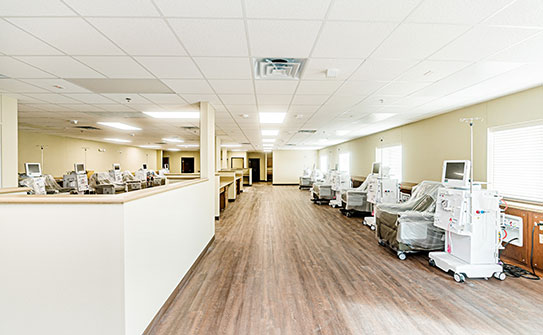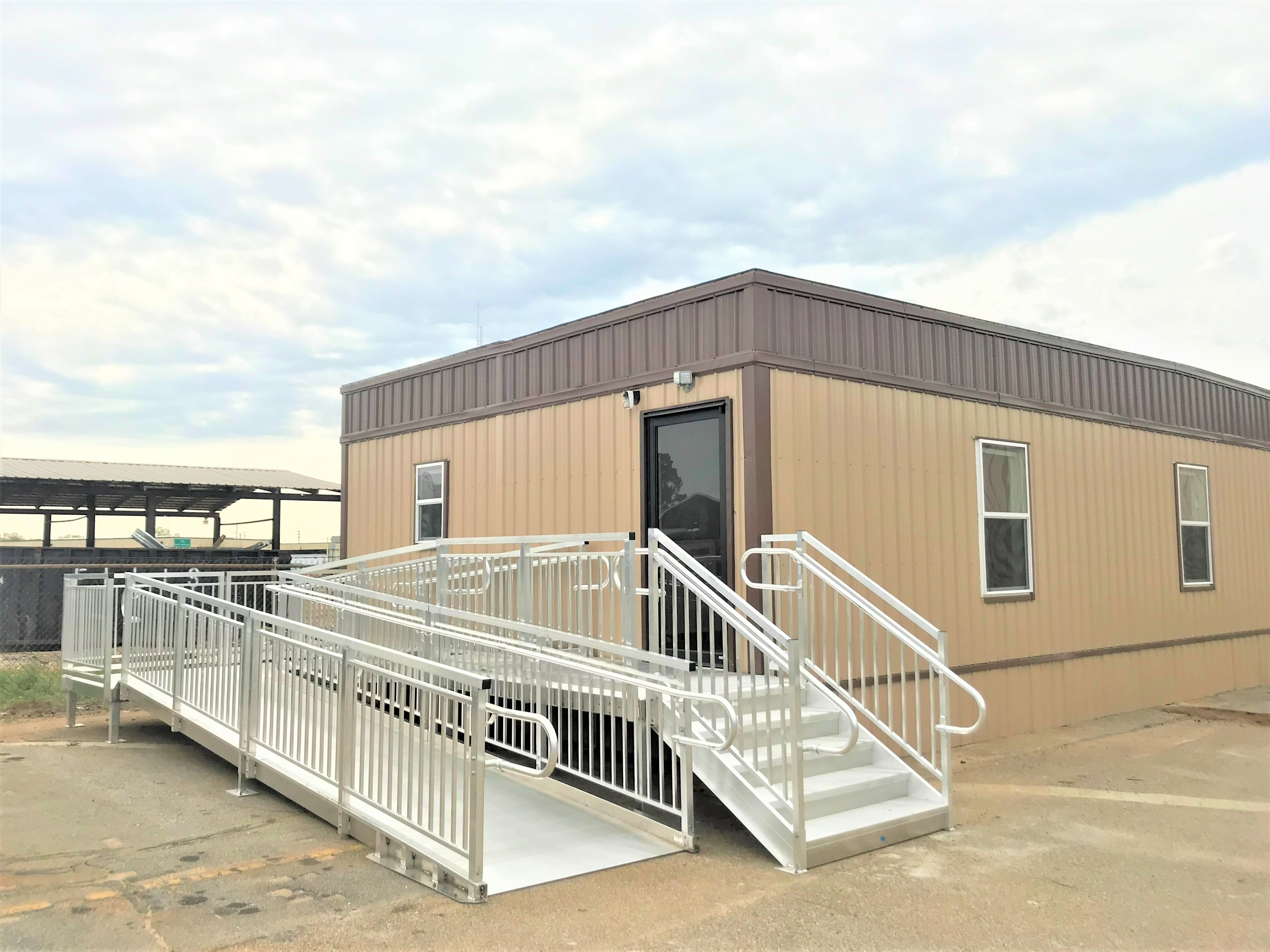Expanding With Modular Construction: Top 6 Industries Using Modular Buildings
Modular construction is becoming more popular for various reasons. Take a look at the top 6 industries using modular buildings to meet their evolving needs.
Key Takeaways
- Modular construction continues to grow in popularity nationally and internationally.
- Businesses and organizations are expanding with modular construction due to its many benefits, including reduced costs, improved quality control, shorter project timelines, minimal site disruption, as well as enhanced safety and sustainability.
- Some of the many industries using modular buildings include government, education, commercial and retail, healthcare, correctional, and industrial.
How Is Modular Construction Growing?
Growing population, technological advancements, and economic expansion are some of the key reasons the U.S. building industry has grown over the past few years. However, it’s not traditional building methods that seem to be driving this growth, but rather modular construction.
According to reports, the U.S. modular construction business has doubled in size to $8 billion in the past five years. Furthermore, sources claim the global modular construction market size is projected to grow from USD 94.84 billion in 2025 to USD 151.53 billion by 2032.
Before we dive into the top industries using modular buildings, let’s take a closer look at what drives their decision to switch from traditional building methods. There are countless reasons businesses and organizations across the country — and the globe — are expanding with modular construction, including but not limited to:
- Reduced costs and improved quality control: Modular construction offers the potential for cost savings once economies of scale are reached. Manufacturing in a factory environment also improves the overall quality of modules.
- Shorter project timelines and minimal site disruption: Since most of the work is done off-site, modular construction reduces the risk of on-site delays (such as weather-related delays or material delivery delays). Similarly, less time spent on-site minimizes disruption to the surrounding environment (like noise and traffic).
- Enhanced safety and focus on sustainability: Off-site manufacturing increases work-zone safety and reliability. Furthermore, modular construction is known to adopt green building practices (reduced waste, opportunities to reuse and repurpose materials, etc.).
Top 6 Industries Using Modular Buildings
Now it’s time to see which industries are taking advantage of the many benefits modular construction has to offer. Below, you’ll find the top 6 industries using modular buildings to solve their space needs.
1. Education
Education is one of the largest industries using modular buildings. Both public and private organizations often face considerable financial and operational strain due to enrollment fluctuations at all levels.
By expanding with modular construction, educational facilities can solve their space needs quickly, with minimal disruption, and at a lower cost. From standard classrooms to administrative offices, here are some ways educational institutions use modular buildings:

- Libraries and media centers
- Science labs
- Tech centers
- Cafeterias and dining halls
- Dormitories and student housing
- Sports facilities and locker rooms
- Restrooms
2. Government
Faced with tight budgets and demanding building codes, government agencies are among the most popular industries using modular buildings. Expanding with modular construction provides agencies a fast and efficient solution for various scenarios, including on-site renovations, current building expansions, and accommodating a rapid increase in new employees. Some examples of how the government may use modular solutions for space needs include:
- Administrative offices/hubs
- Field offices
- Permit centers
- Libraries
- Military barracks and housing
- Emergency response facilities
- Border security and inspection stations
- Courthouses and legal buildings
- Wellness housing
3. Healthcare
One of the most important industries using modular buildings is the healthcare industry. With its fast-paced environment and the need to accommodate patients, healthcare facilities can take advantage of expanding with modular construction to solve their growing space needs. Whether it’s an individual practitioner or a large medical institution, the healthcare industry uses modular buildings for the following purposes:

- Medical office buildings
- Isolation units
- Dialysis centers
- Research labs
- Urgent care centers
- Emergency facilities
- MRI/imaging centers
4. Commercial and Retail
When it comes to the commercial and retail industry, uninterrupted operations and consistent profitability during expansions are a priority. Expanding with modular construction allows businesses in the commercial and retail industry to expand without stopping operations or losing profit.
The commercial and retail industry uses modular buildings for various purposes, including:
- Sales offices
- Showrooms
- Stores
- Pop-up shops
- Franchises
- Kiosks
- Design centers
5. Corrections
Enhanced security, cost savings, and rapid deployment are all pressing needs for the corrections industry. The controlled factory environment of modular construction ensures consistent quality and the ability to integrate high-security features.
This approach not only helps manage growing inmate populations but also minimizes disruption to existing facilities during expansion projects. Correctional facilities take advantage of modular solutions for space needs in various ways, including:

- Detention cells
- Administrative offices
- Medical and mental health units
- Visitation areas
- Program and educational spaces
- Temporary holding cells
6. Industrial
It’s not a surprise that another one of the top industries using modular buildings is the industrial industry. Industrial businesses, particularly those operating in remote sites, can find substantial benefits in modular construction over conventional methods.
The time and cost savings are considerable when modular units — nearly fully assembled — are delivered directly, eliminating the need to transport extensive construction crews and equipment. Industrial businesses and organizations use modular solutions to solve space needs in the following ways:
- Management offices
- Scale houses
- Training centers
- Workforce housing
Have Questions? Get Answers.
We know there are many misconceptions surrounding modular solutions, and if you’re not familiar with the processes, you likely have some questions. Continue reading to discover answers to frequently asked questions about our modular buildings.
At BOXX Modular, we offer both permanent and temporary modular buildings—each built with high-quality materials and a commitment to environmentally conscious practices. While temporary modular buildings effectively address short-term needs, permanent modular construction provides durable solutions for long-term requirements.
Your business has distinct needs, and BOXX is equipped to meet them. We provide options for customizing your modular building, including size, appearance, layout, and materials, ensuring a solution that's uniquely yours. If you have a specific floor plan in mind, let us know and we’ll work with you to meet your exact specifications.
With consistent upkeep, temporary modular buildings can reliably serve their purpose for 25 to 30 years. Furthermore, permanent modular buildings offer a lifespan comparable to conventionally constructed buildings, often lasting 35, 50, or even more years.

Interested in learning more?
See how our modular solutions can help you make a lasting impact in your industry.
Ready to solve your space needs?
Modular buildings are the way to go. Request a quote or contact us today to get the conversation started. We’d love to talk to you about how modular can meet — and exceed — your needs.








